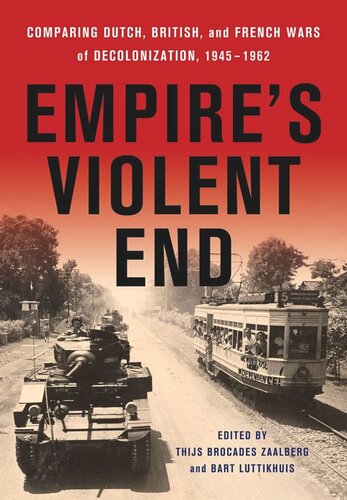

Most ebook files are in PDF format, so you can easily read them using various software such as Foxit Reader or directly on the Google Chrome browser.
Some ebook files are released by publishers in other formats such as .awz, .mobi, .epub, .fb2, etc. You may need to install specific software to read these formats on mobile/PC, such as Calibre.
Please read the tutorial at this link: https://ebookbell.com/faq
We offer FREE conversion to the popular formats you request; however, this may take some time. Therefore, right after payment, please email us, and we will try to provide the service as quickly as possible.
For some exceptional file formats or broken links (if any), please refrain from opening any disputes. Instead, email us first, and we will try to assist within a maximum of 6 hours.
EbookBell Team

0.0
0 reviewsIn Empire's Violent End, Thijs Brocades Zaalberg and Bart Luttikhuis, along with expert contributors, present comparative research focused specifically on excessive violence in Indonesia, Algeria, Vietnam, Malaysia, Kenya and other areas during the wars of decolonization. In the last two decades, there have been heated public and scholarly debates in France, the United Kingdom, and the Netherlands on the violent end of empire. Nevertheless, the broader comparative exploits into colonial counter-insurgency tend to treat atrocities such as torture, execution, rape, and others on the side. The editors describe how such comparisons mostly focus on the differences by engaging in 'guilt rating.' Moreover, the dramas that have unfolded in Algeria and Kenya tend to overshadow similar violent events in Indonesia, the very first nation to declare independence directly after World War II.
Empire's Violent End is the first book to place the Dutch-Indonesian case at the heart of a comparison with focused, thematic analysis on a diverse range of topics to demonstrate that despite variation in scale, combat intensity and international dynamics, there were more similarities than differences in the ways colonial powers used extreme forms of violence. By delving into the causes and nature of the abuse, Brocades Zaalberg and Luttikhuis conclude that all cases involved some form of institutionalized impunity, which enabled the type of situation in which the forces in the service of the colonial rulers were able to use extreme violence.